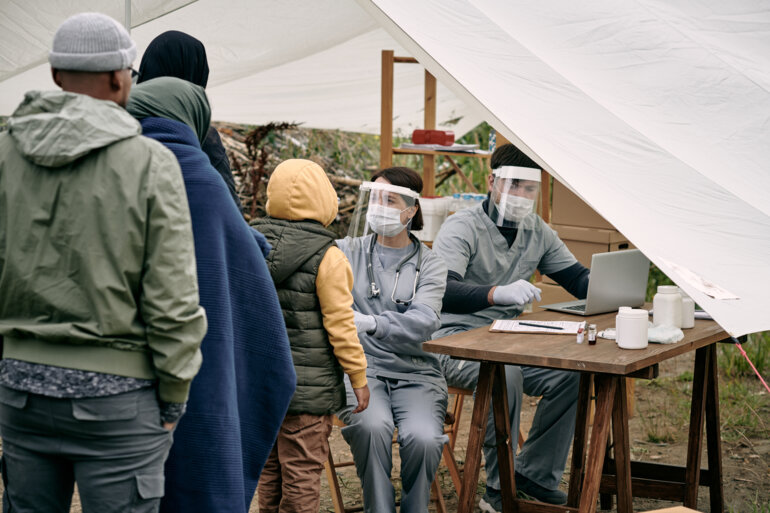Rapid access to clinical trials is essential for patients with cancer, especially those who have run out of other treatment options. But Dr Bettina Ryll, Founder of the Melanoma Patient Network Europe (MPNE) and current member of the Horizon Europe Cancer Mission Board, sees many patients in Europe still unable to benefit. Administrative burden, under-staffed authorities granting approval, geographical and cultural barriers as well as limited trans-border access to trials are among the many reasons she lists. Although COVID-19 halted recruitment to many trials, it has also resulted in greater flexibility in other cases, suggesting opportunities to improve trial access and to generally reduce the burden of trial participation for cancer patients.
What are the barriers currently limiting access to trial participation for people with cancer?
Overly restrictive inclusion and exclusion criteria in Phase 3 trials and the limited number of Phase 1 and 2 studies even in wealthy countries are equally important barriers that leave desperate patients without options.
Patients and patient advocacy groups are frustrated at seeing clinical trials initiated in other countries but not in their own. I strongly feel that Europe should do more to enable clinical trials, in particular, Phase 1 and 2 studies that currently often only run in the US. In addition to fostering ecosystems dedicated to moving basic research findings into clinical care, it is time to review the entire process of how clinical trials are planned, initiated, conducted and closed.
During the early phases of the COVID-19 emergency, many studies and global registries have been set-up quickly, and this has shown that some practical aspects can be speeded up to provide rapid results for guiding clinical practice. Do you envisage a similar scenario for cancer research too?
Clearly, clinical trials need to be regulated – after all, we are conducting experiments on people, so I am not saying ‘make them faster at any cost’. However, one of the things COVID-19 has demonstrated is that it is entirely possible to initiate well-designed, ethical clinical trials in a fraction of the time that we usually consider necessary. Setting aside the infectious nature of COVID-19, the mortality of many cancers is considerably higher than that of COVID-19, so I do not buy the urgency argument. This is above all a matter of focus, not of urgency.
“We have seen considerable differences in trial availability between countries with a similar population size, simply because one has centralised, specialised care and the other does not”
Care pathways and overall infrastructure have a major impact on the ability to attract clinical trials. Centres with established clinical expertise and well-established links to basic research are so much more likely to attract clinical trials, particularly in rare cancers. We have seen considerable differences in the availability of trials between countries with a similar population size, simply because one has centralised, specialised care and the other does not.
Academic clinical research needs dedicated support systems, including administrative and statistical support, as clinicians are already over-burdened with clinical care. I would like to see ambitious, collaborative clinical research with sophisticated methodology, particularly statistics, and a tight link-up with basic research. We need to find better ways for different disciplines to work together – just as we have now seen for COVID-19, where suddenly clinicians, virologists, molecular biologists, computer scientists, epidemiologists and many others work together to produce astonishing results. So, it is not that we lack the people or the expertise, it is something in the way we work.
Is the burden of bureaucracy part of the clinical trial problem for patients with cancer as well as for clinicians?
Bureaucracy is an important barrier for trial participation and particularly worrisome for those patients who have run out of treatment options and where a few weeks can make a critical difference. However, bureaucracy is only one of many issues limiting patient access to what I call ‘experimental medicine’.
I have never encountered a melanoma patient who did not join a clinical trial because of the informed consent form but this may be specific to MPNE’s focus on advanced melanoma. In my experience, patients worry above all about finding, choosing and accessing appropriate clinical trials – and then staying on them; the informed consent is just another nuisance in an overall tedious process.
That does not exempt those who develop informed consent forms from their obligation to provide forms that are accessible and fair to the patient. Burying critical information, notably that 1) it is a patient’s free choice to participate in a clinical trial and 2) it is the patient’s right to withdraw from a clinical trial without fear of repercussions, in informed consents the size of phone books is an attempt to hide the truth – and a patient’s rights – in plain sight.
Short, two- or three-page consent forms do already exist in some places, so it can be done. I would be satisfied with a one-page executive summary that details a patient’s rights, in addition to the full consent.
What are the most common reasons why patients may be deterred from taking part in clinical trials?
In my experience, patients are willing to join experimental studies but that is admittedly very much focused on advanced disease. Of course, if patients can receive the same treatment outside a trial without the travel, the lengthy hospital appointments and the additional paperwork, I am sure they do. The burden of trial participation is considerable – my colleague has tracked the burden of care for her husband and she has noted over 800 hours/year for trial participation alone, so this is considerable and something we need to address. We see patients turning down trials, especially in the adjuvant setting, because they cannot afford to take that much time off work, so we are rather concerned about the overall burden of care.
Having said that, quality of life questionnaires are not particularly popular in melanoma community and that despite the fact that everyone agrees that quality of life is critically important. Apart from the general issue of how sensitive these tools are, in my opinion, part of the problem is how we currently handle these surveys: a patient reports feeling depressed or in a lot of pain, and then gets thanked for their answer but receives no help.
Are patients concerned that the COVID-19 pandemic will delay their clinical trials and their access to innovative new treatments?
We have been relieved that some of the trials that are important for us in melanoma have continued and oncology units have gone to great lengths to ensure patients are safe and can continue to receive their care. However, many of these studies stopped recruiting, so newly diagnosed patients were left without options and the initiation of new studies has generally been delayed. Some of these will not now come to Europe after all, which means that patients who are progressing now have fewer options than those before COVID-19.
On the plus side, we have seen some pragmatic and much-welcomed adaptations and flexibility in the ways clinical trials are being conducted during the pandemic. The concept of ‘trials from home’ has been in discussion for a while and not only means that cancer patients can be protected from potential exposure to COVID-19, it may also mean that future clinical trials become accessible to patients in remote areas or those who cannot afford to take time off work to participate. Having said that, in a pre-COVID-19 discussion, some of our patients were not delighted at the thought of having their living room full of medical equipment, so it remains to be seen how this will evolve post-COVID-19.
As a self-declared silver-lining person, my hope is that our learnings during the pandemic will result not only in the same but in better cancer care post-COVID-19. An example would be side-effect management in oncology. In melanoma, we have seen the rapid introduction of 10 novel molecules with distinct adverse event profiles. Patients who experience severe side-effects that require urgent care often do not receive correct care as many healthcare professionals outside the oncology area are not familiar with these products. An Irish patient reported that during COVID-19, the local hospital had a dedicated oncology emergency department, and that she had never received better care for her side-effects. This is something I would like to see continue.








